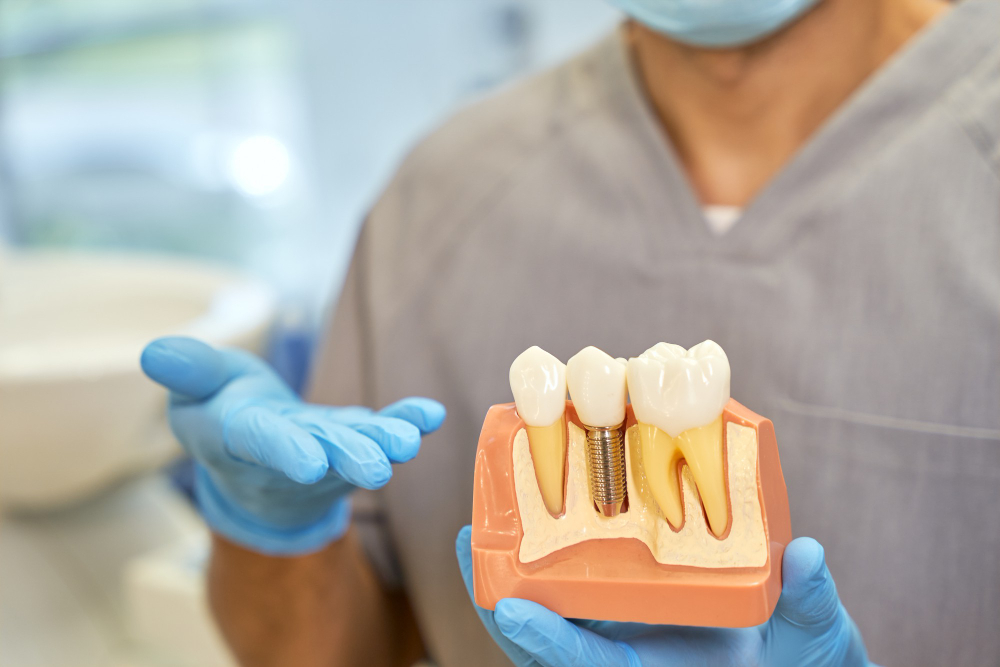What Are Dental Implants?
Dental implants are small metal posts that replace missing teeth. Dentists place them into your jawbone. Over time, the bone grows around the implant. This creates a strong base for a new tooth. Many people choose dental implants for tooth replacement because they look and feel natural. According to the American Dental Association, implants are a safe and long-lasting option for many adults.
Who Needs Dental Implants?
Not everyone needs dental implants. However, you may be a good candidate if you:
Sometimes, people with bone loss may still get implants after special treatments. Your dentist will check your mouth and health before recommending dental implants.
Benefits of Dental Implants
Dental implants offer many advantages. For example, they can improve your oral health and boost your confidence. Here are some key benefits of dental implants:
In addition, dental implants do not harm nearby teeth. The Centers for Disease Control and Prevention (CDC) notes that good oral health supports your overall well-being.
Risks and Considerations
While dental implants are safe, there are some risks. It is important to know these before you decide. Possible risks include:
However, most problems are rare and can be treated. Your dentist will discuss your health and any concerns before dental surgery.
The Dental Implant Procedure (Step-by-Step)
Getting dental implants involves several steps. Here is what you can expect during the dental implant procedure:
Each step is done with care to keep you comfortable. The whole process may take several months, but the results can last for years.
Aftercare and Recovery Tips
Proper care helps your dental implants last longer. Here are some aftercare and recovery tips:
With good care, dental implants can stay healthy for many years. If you notice pain or swelling, contact your dentist right away.
Frequently Asked Questions
Are dental implants painful?
Most people feel only mild discomfort after dental surgery. Your dentist will use medicine to keep you comfortable.
How long do dental implants last?
With proper care, dental implants can last 10 years or more. Some last a lifetime.
Can anyone get dental implants?
Most adults can get dental implants. However, your dentist will check your health and bone strength first.
How do I care for my dental implants?
Brush, floss, and see your dentist regularly. Good oral health habits are important for implants.
For more details, you can visit trusted sources like the World Health Organization (WHO) or the American Dental Association.
Ready to improve your smile? Consult a qualified dentist to find out if dental implants are right for you.

